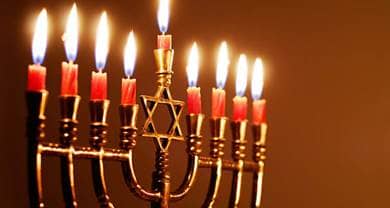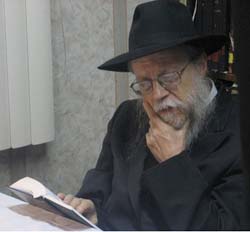- Trending:
- Pope Leo Xiv
- |
- Israel
- |
- Trump
- |
- Social Justice
- |
- Peace
- |
- Love

RELIGION LIBRARY
Judaism
Leadership
The rabbis are heirs to the traditions of the scribes (sofrim) of the early Second Temple period and the Pharisee faction of the Judean nation, who rose to prominence during the late period of Roman occupation of Israel. The Pharisees, in opposition to the Sadducees, whose authority allegedly derived from their priestly lineage, stressed the study of Torah and obedience to its laws over the rituals of the Temple cult.
The early rabbis, during the late 1st and 2nd centuries C.E., emphasized assiduous study of Torah and faithful adherence to its laws, as they interpreted them, as the surest path to a life of holiness. They promulgated the doctrine of a "dual revelation" at Mt. Sinai, claiming that not only did God give the written Torah of Moses, but also its legal exegesis, which they dubbed the "Oral Torah" and to which they attached equal authority. After the great dispersal of the Jews throughout the Diaspora, following the destruction of the Second Temple, the rabbinical interpretations of Torah quickly became the basis for standard Jewish beliefs, traditions, and normative practices.
| Mishna + Gerara = Talmud | |
| Jerusalem Talmud Babylonian Talmud |
|
The codification of rabbinic law began with the first post-biblical code of Judaism, the Mishnah, in 200 C.E. The Babylonian Talmud—a massive compendium of rabbinical interpretations and commentary on the Mishnah that appeared in its final redacted version around 600—was universally accepted by Jews as the standard, encyclopedic source of Jewish wisdom and practice, and has been the basis for all subsequent works of rabbinical Judaism ever since.
 It is important to understand that, unlike priests, rabbis are lay scholars of Torah, not members of any consecrated religious order. In all respects, their lives are governed by the same halakhic (Jewish legal) laws and norms that are binding on all other Jews. The rabbis' status as "spiritual leaders" derives neither from any special, or inherent, spiritual "gifts" with which they are endowed, nor do they make any claim to prophetic and charismatic powers or any other supernatural knowledge or mysterious insight and holiness. Rather, their authority derives solely from their Torah scholarship, specifically their erudition in Talmudic texts and the post-Talmudic codes of Jewish law.
It is important to understand that, unlike priests, rabbis are lay scholars of Torah, not members of any consecrated religious order. In all respects, their lives are governed by the same halakhic (Jewish legal) laws and norms that are binding on all other Jews. The rabbis' status as "spiritual leaders" derives neither from any special, or inherent, spiritual "gifts" with which they are endowed, nor do they make any claim to prophetic and charismatic powers or any other supernatural knowledge or mysterious insight and holiness. Rather, their authority derives solely from their Torah scholarship, specifically their erudition in Talmudic texts and the post-Talmudic codes of Jewish law.
Although in modern times the pastoral role of contemporary rabbis has greatly expanded to include responsibilities toward their congregations such as personal counseling and social work, similar to those of Christian ministers and priests, the classic role of the rabbi until the modern period was limited to teaching Torah, occasional preaching, and most importantly adjudicating halakha. Rabbinical "ordination," which, during the Second Temple period, did once involve anointing with oil and entry into a spiritual order, akin to the consecration of Israelite priests of ancient Israel, has since the early Middle Ages involved no more than attaining the equivalent of a law degree; specifically an advanced degree in Talmudic law and classical rabbinic texts.
 Rabbis do not perform miracles or hear heavenly voices and their prestige is directly proportional to the level of their Talmudic scholarship, not their personal spiritual charisma. The one notable exception to this criterion for rabbinical leadership is to be found in the Hasidic community whose religious leaders, known as zadikim (the righteous) or rebbes (an intimate form of the term rabbi) did claim supernatural abilities, including direct communion with God and performance of miracles, and whose authority stemmed less from their Talmudic learning than from their charismatic powers.
Rabbis do not perform miracles or hear heavenly voices and their prestige is directly proportional to the level of their Talmudic scholarship, not their personal spiritual charisma. The one notable exception to this criterion for rabbinical leadership is to be found in the Hasidic community whose religious leaders, known as zadikim (the righteous) or rebbes (an intimate form of the term rabbi) did claim supernatural abilities, including direct communion with God and performance of miracles, and whose authority stemmed less from their Talmudic learning than from their charismatic powers.
 The other major Jewish religious leaders are cantors, who are laypersons trained to chant the classical Hebrew liturgy in accordance with the traditional nusach or cantillation. In Europe since the Renaissance period, cantorial music was greatly influenced by western musical trends, and in the modern period especially by opera. Cantors were increasingly expected to possess exceptional vocal skills, akin to those of opera singers, as well as improvisational talents, akin to those of jazz musicians. Particularly in eastern Europe and America, the cantorial arts, known as Hazanut, reached their apex in the late 19th and early 20th centuries, referred to as the "Cantorial Golden Age," during which cantors were treated in major Jewish communities, from Warsaw to New York, as the rough equivalent of rock stars. People flocked to synagogues to hear the great cantors perform musically complex compositions.
The other major Jewish religious leaders are cantors, who are laypersons trained to chant the classical Hebrew liturgy in accordance with the traditional nusach or cantillation. In Europe since the Renaissance period, cantorial music was greatly influenced by western musical trends, and in the modern period especially by opera. Cantors were increasingly expected to possess exceptional vocal skills, akin to those of opera singers, as well as improvisational talents, akin to those of jazz musicians. Particularly in eastern Europe and America, the cantorial arts, known as Hazanut, reached their apex in the late 19th and early 20th centuries, referred to as the "Cantorial Golden Age," during which cantors were treated in major Jewish communities, from Warsaw to New York, as the rough equivalent of rock stars. People flocked to synagogues to hear the great cantors perform musically complex compositions.
Since the second half of the 20th century however, there has been a considerable shift in cantorial culture, dictated by the changing musical tastes of both American and Israeli Jews. The decreasing appetite for the subtleties and complexities of classical Hazanut, and especially an impatience with the length of formal cantorial services, has resulted in the fact that the large majority of cantors today lead their congregations in communal singing, only rarely performing the classical pieces of the cantorial repertoire. This has radically changed the musical aesthetic of synagogue services from formal choral concerts to participatory communal singing.
Study Questions:
1. How did an oral tradition help to shape the leadership within the Jewish community?
2. Where do rabbis receive their authority?
3. What is the role of a contemporary rabbi? How are they educated?
4. Who are cantors? What do they contribute to the Jewish community?










